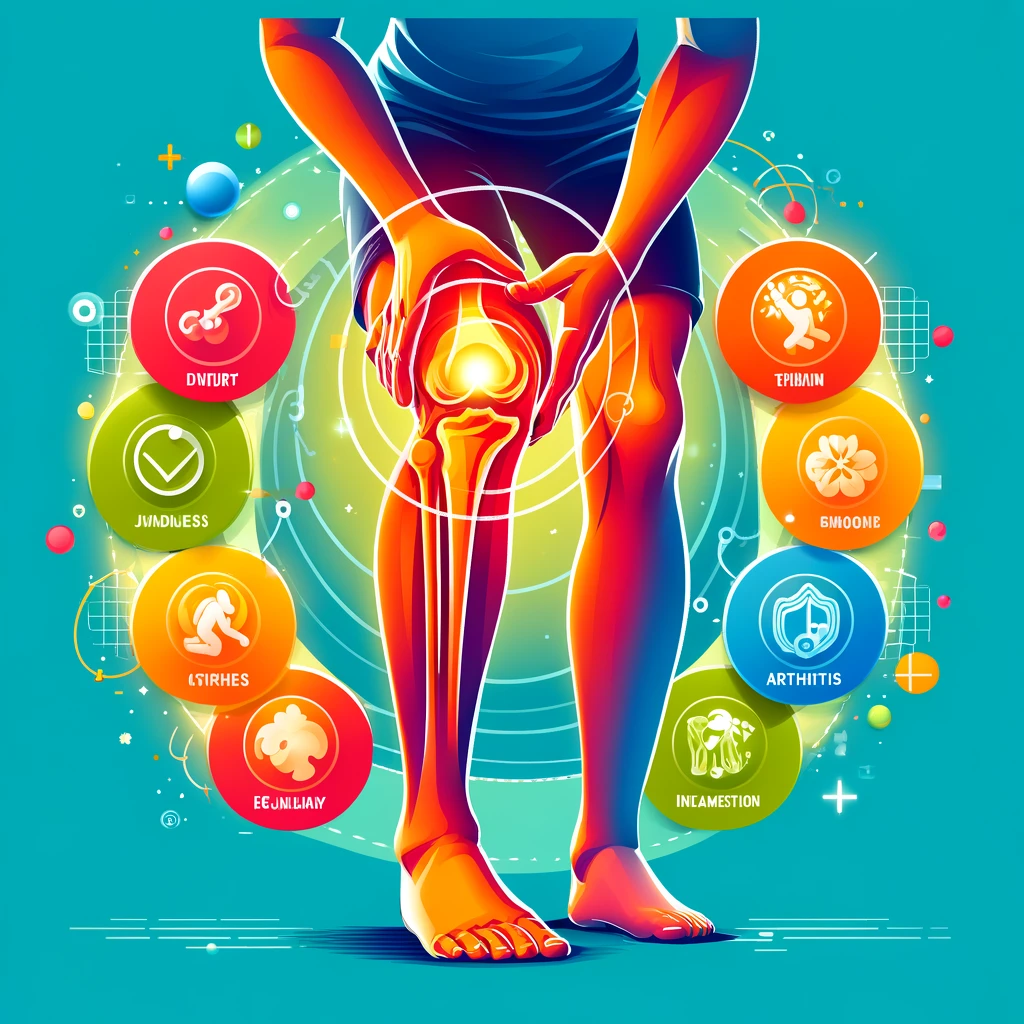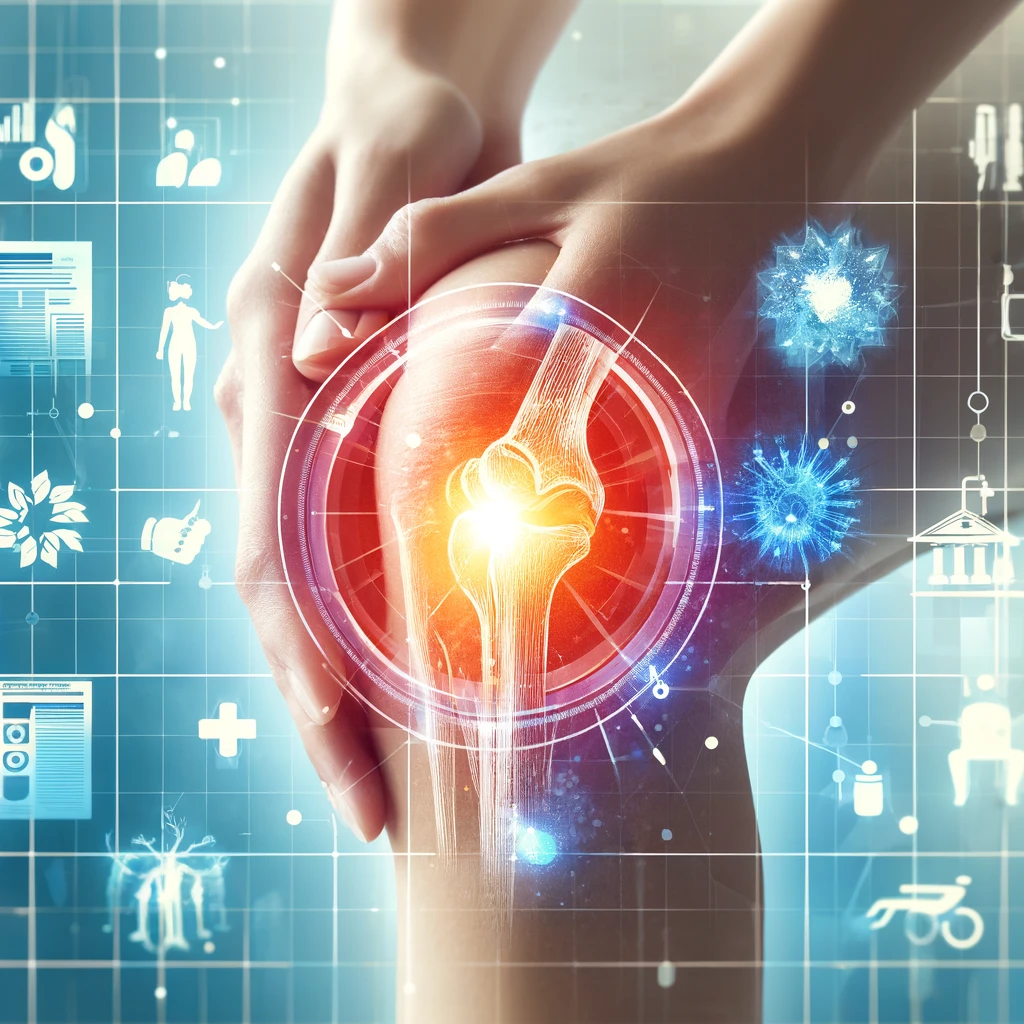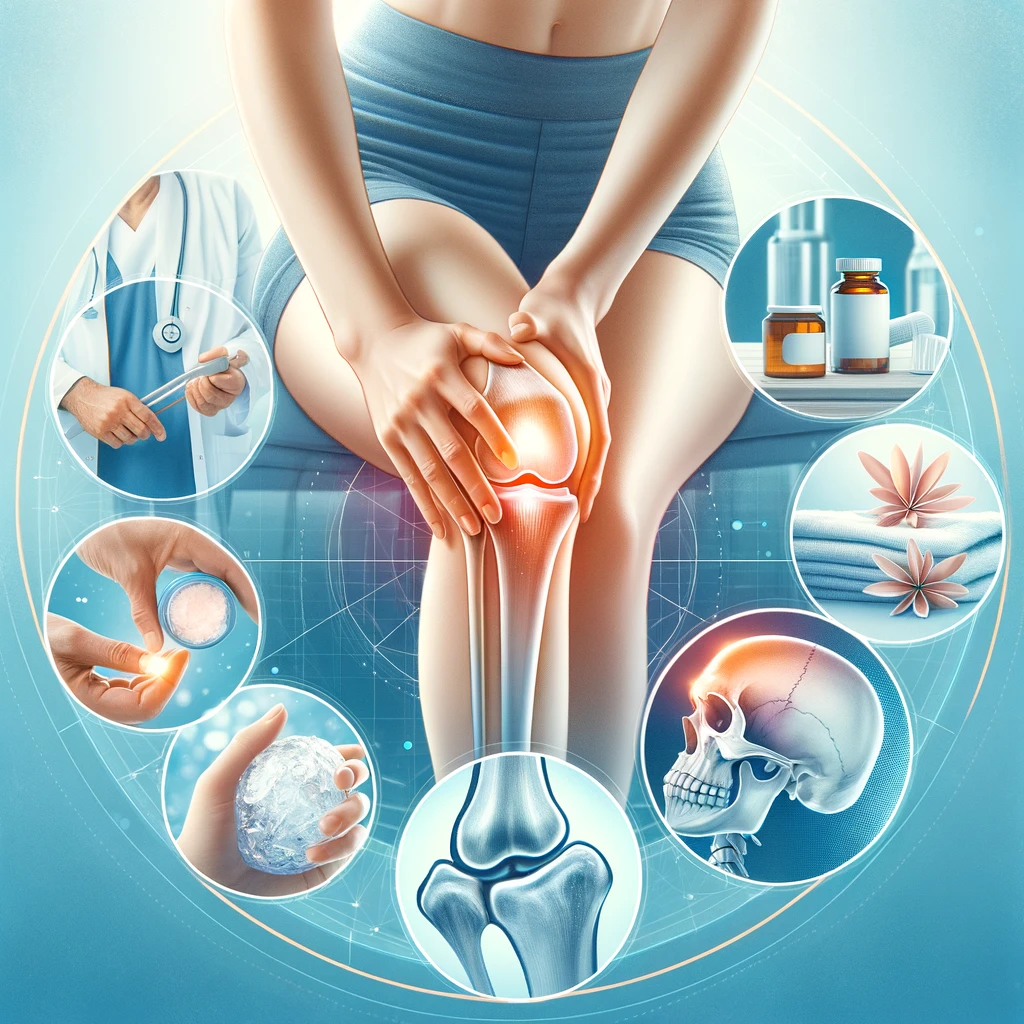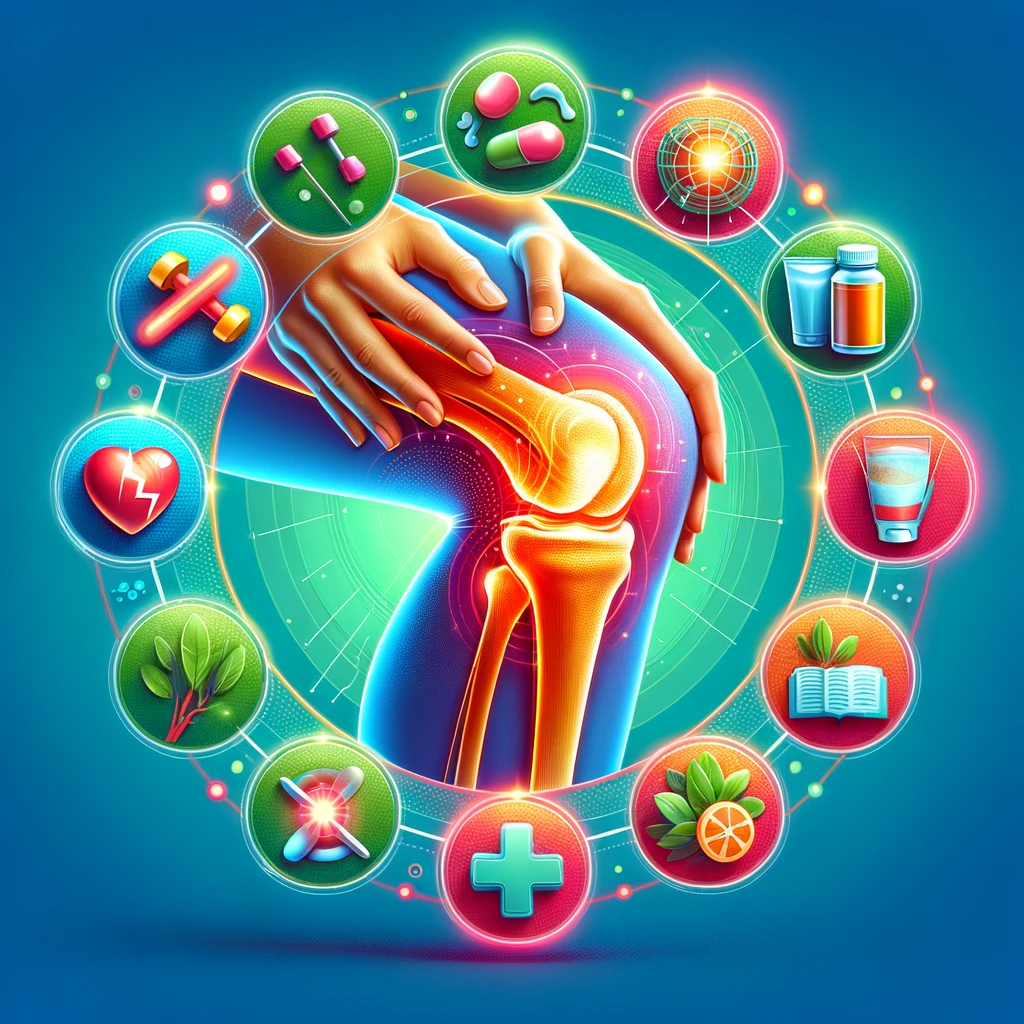
Table of Contents
Knee pain is a common ailment that affects people of all ages. Whether it’s a dull ache or a sharp pain, knee discomfort can significantly impact your daily life. Understanding the causes of knee pain is crucial for effective treatment and prevention. So, let’s dive into what might be causing that pesky knee pain.
Anatomy of the Knee
To understand knee pain, it’s essential to know a bit about the knee’s anatomy. The knee is a complex joint made up of bones, cartilage, ligaments and tendons. It’s where the femur (thigh bone) meets the tibia (shin bone) and is covered by the patella (kneecap). This intricate structure allows for movement and support but is also prone to injury and wear.
Common Causes of Knee Pain
Injuries
Ligament Injuries: The knee has four main ligaments, and injuries to these can cause significant pain. The anterior cruciate ligament (ACL) is particularly prone to tears, especially in athletes.
Meniscus Tears: The meniscus is a piece of cartilage that cushions the knee. A sudden twist or turn can cause a tear, leading to pain and swelling.
Mechanical Problems
Loose Body: Sometimes, a piece of bone or cartilage can break off and float in the joint space, causing pain and limited movement.
Dislocated Kneecap: This occurs when the patella slips out of its normal position, often due to trauma or sudden changes in direction.
Arthritis
Osteoarthritis: This is the most common type of arthritis in the knee, caused by the gradual wear and tear of cartilage.
Rheumatoid Arthritis: An autoimmune condition that causes inflammation in the joints, including the knees.
Gout: A type of arthritis caused by the buildup of uric acid crystals in the joint.
Less Common Causes of Knee Pain
Infections: Bacterial infections can lead to severe knee pain and require prompt medical treatment.
Patellofemoral Pain Syndrome: Pain around the kneecap often related to overuse or improper alignment.
Iliotibial Band Syndrome: Inflammation of the iliotibial band, which runs along the outside of the thigh and knee.
Symptoms to Watch For
Understanding the symptoms associated with knee pain can help identify the cause. Look out for:
- Pain Location: Where the pain is can indicate the underlying issue.
- Swelling: Often a sign of injury or inflammation.
- Stiffness: Difficulty in moving the knee can point to arthritis or other joint issues.
- Redness and Warmth: Signs of infection or severe inflammation.
Risk Factors
Several factors can increase the likelihood of knee pain, including:
Age: The risk of knee problems increases with age.
Weight: Extra weight puts additional stress on the knees.
Activity Level: High-impact sports or sudden increases in activity can cause knee pain.
Previous Injuries: Past knee injuries can make the knee more susceptible to future problems.
Diagnosis of Knee Pain
Diagnosing knee pain typically involves:
Physical Examination: A doctor will assess the knee’s range of motion and look for signs of injury.
Imaging Tests: X-rays, MRIs, or CT scans can provide detailed images of the knee’s structure.
Lab Tests: Blood tests can identify infections or autoimmune conditions like rheumatoid arthritis.
Treatment Options
Treatment varies depending on the cause and severity of the pain:
Medications: Pain relievers and anti-inflammatory drugs can help manage symptoms.
Physical Therapy: Exercises to strengthen the muscles around the knee and improve flexibility.
Surgery: In severe cases, surgical intervention may be necessary to repair or replace damaged structures.
Lifestyle Changes: Weight management and low-impact exercise can alleviate knee pain and prevent further issues.
Home Remedies for Knee Pain
Simple home remedies can provide relief for mild knee pain:
R.I.C.E. Method: Rest, Ice, Compression and Elevation can reduce swelling and pain.
Exercise and Stretching: Regular, gentle exercises can keep the knee joint flexible and strong.
Dietary Considerations: A diet rich in anti-inflammatory foods can help manage pain.
Preventing Knee Pain
Prevention is better than cure. Here are some tips to keep knee pain at bay:
Proper Warm-Up: Always warm up before engaging in physical activity to prepare the muscles and joints.
Strengthening Exercises: Regularly strengthening the muscles around the knee can provide better support.
Protective Gear: Using knee pads or braces during high-impact activities can prevent injuries.
Impact of Knee Pain on Daily Life
Knee pain can significantly affect your daily activities:
Mobility Issues: Pain can limit your ability to walk, run or even stand for long periods.
Psychological Effects: Chronic pain can lead to stress, anxiety and depression.
When to See a Doctor
It’s essential to seek medical attention if you experience:
- Severe pain that doesn’t improve with rest
- Significant swelling
- Inability to bear weight on the knee
- Signs of infection, such as redness and warmth
Conclusion
Understanding the various causes of knee pain is the first step toward effective management and prevention. Whether the pain arises from an injury, arthritis or another underlying condition, it’s essential to address it promptly and appropriately. Implementing lifestyle changes, engaging in regular physical activity, and seeking professional medical advice when necessary can significantly improve your knee health and overall quality of life. Remember, your knees are pivotal to your mobility, so taking proactive steps to care for them will ensure you stay active and pain-free for years to come.
FAQs
Can knee pain be a sign of something serious?
Yes, knee pain can sometimes indicate serious conditions like infections or severe injuries. Always consult a doctor if you have concerns.
What can I do to prevent knee pain?
Maintain a healthy weight, engage in low-impact exercises, and use proper techniques during physical activities to prevent knee pain.
Are there any specific exercises for knee pain relief?
Yes, exercises like leg lifts, hamstring stretches and quad sets can help strengthen the muscles around the knee and reduce pain.
How long does it take for a knee injury to heal?
The healing time for a knee injury varies depending on the severity. Minor injuries might heal in a few weeks, while severe injuries could take months.
Can diet affect knee pain?
Yes, a diet rich in anti-inflammatory foods can help reduce knee pain. Foods like fish, nuts and leafy greens are beneficial.



